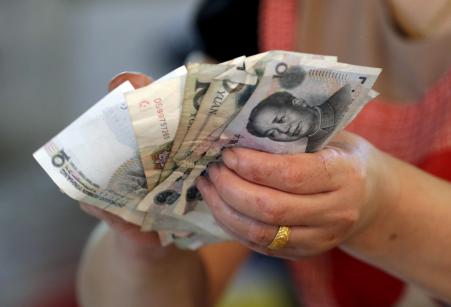By Avaneesh Pandey -

On Monday, China’s currency -- the yuan -- will most likely join the International Monetary Fund’s basket of reserve currencies, known as Special Drawing Rights, according to media reports.
The IMF is expected to approve the yuan’s inclusion into the basket of elite currencies when it meets Monday, and its chief Christine Lagarde has already endorsed the move, the Wall Street Journal reported.
The SDR -- a virtual currency whose value is currently based on the yen, euro, pound and dollar -- is an international reserve asset that the IMF uses for emergency lending to its members. While SDR is not a freely traded currency, it serves as an international reserve asset. The IMF issues its crisis loans valued in SDRs, which came in handy during the financial crisis when it helped bolster member nations’ official reserves.
Until recently, China’s demand to include the yuan in the IMF’s basket of reserve currencies had been mostly rebuffed, as it was considered too tightly controlled. The yuan, which recently surpassed the Japanese yen to become the fourth most used currency in global transactions, still remains tightly controlled by the People’s Bank of China, the country’s central bank.
While the inclusion of the yuan would be a public acknowledgement of China’s clout in the global economy, it would also put further pressure on the government to take steps toward creating a more open, market-oriented economy.
“Domestically, it’s far from certain whether the SDR status could force other, structural overhauls,” Zhang Ming, a senior economist at the Chinese Academy of Social Sciences, told the Journal.
The last time the SDR basket was modified was in 2000, when the euro replaced the German deutschemark and the French franc.
Currently, the total value of SDRs is approximately $280 billion. Following its last review in 2010 -- which factored in currency use in international trade -- the dollar accounted for 41.9 percent of the SDR, while the euro, the pound and the yen accounted for 37.4 percent, 11.3 percent and 9.4 percent respectively. It is not yet clear what the yuan’s weight in the basket would be.
